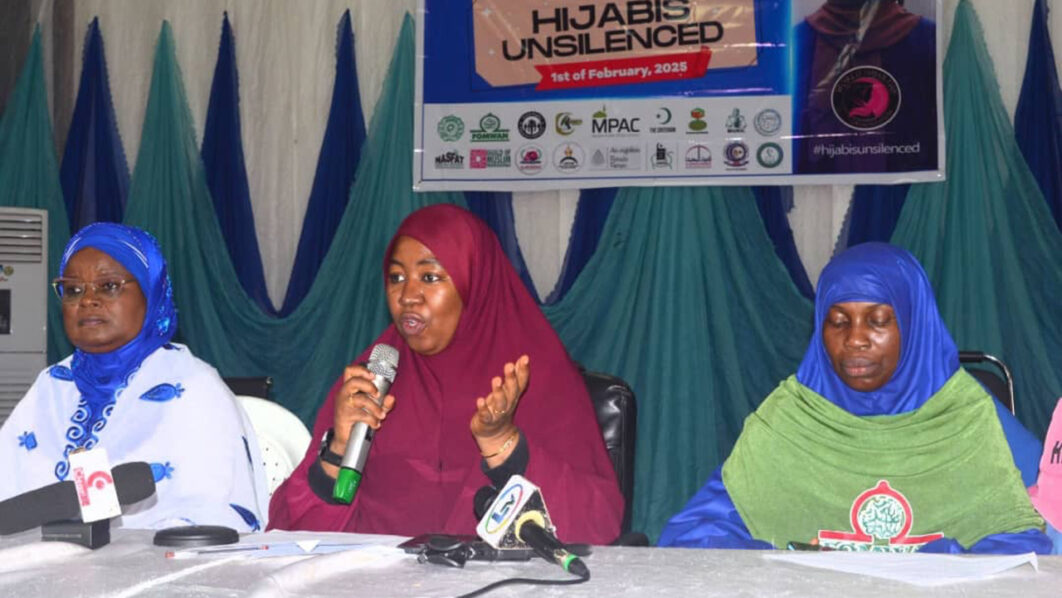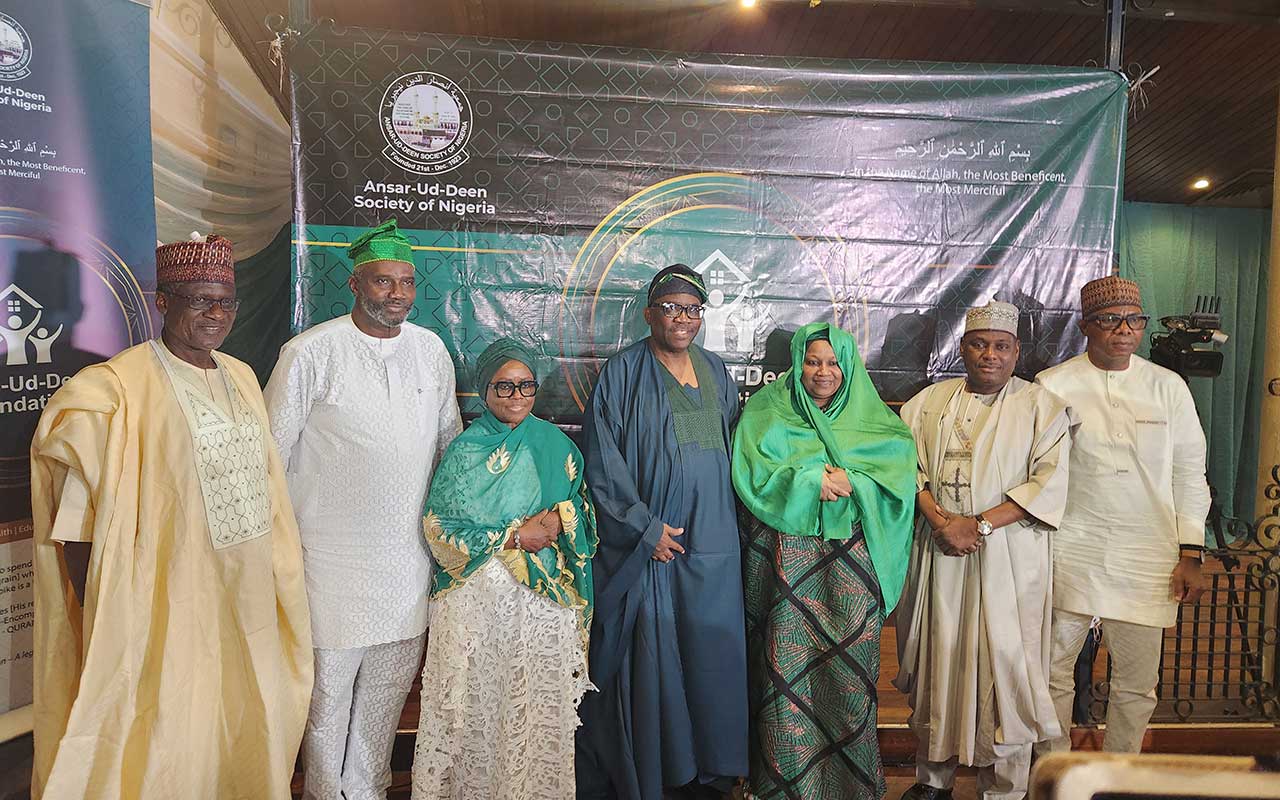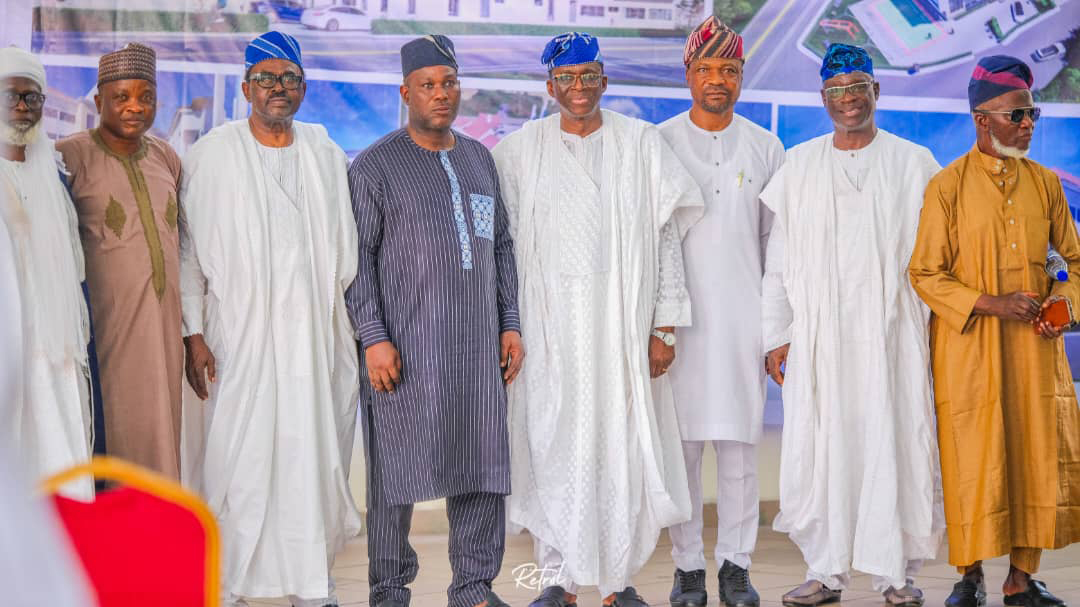
Despite court judgment and awareness of the significance of adorning hijab, it is disheartening to know that Muslim girls and women still face discrimination in public sphere.
On this note, a coalition of Muslim Women in Nigeria, under the aegis of the Hijab Right Advocacy Initiative, has called on policymakers, law enforcement agencies, educators and service providers to urgently adopt policies and provide training to officers on respecting religious expressions, including the right of Muslim women to adorn their hijabs in public places.
To commemorate World Hijab Day (WHD) 2025, the group comprises Hijab Rights Advocacy Initiative; Al Muminaat The Believing Women Organisation;Nasru- llahi- L- Fathi (NASFAT) Society; Muslim Students’ Society of Nigeria ( MSS) Lagos State Area Unit; Federation of Muslim Women Associations in Nigeria (FOMWAN), Lagos;
The Criterion Lagos District; International Muslim Women Union (IMWU); Islamic Medical Association of Nigeria (IMAN); Lagos Secretariat Community Central
Mosque; Muslim Public Affairs Centre (MPAC) and AkhwaatMuslimat Organisation.
Others are: Muslim Rights Concern (MURIC); Guild of Muslim Professionals; Muslim Media Practitioners of Nigeria (MMPN); Pure Heart Islamic Foundation; An Nujabau Female Forum; Muslim Lawyers Association on Nigeria (MULAN) and IzharulHaq Movement of Nigeria converged to raise awareness on the significance of hijab to Muslim women.
The World Hijab Day is a yearly event celebrated every February 1 in over 140 countries. The purpose of the day is to raise awareness about modest Muslim dress.
The group’s coordinator and convener, Hijab Right Advocacy,MutiatOrolu-Balogun, said Muslim women in Nigeria join millions of women across the globe in commemorating the 2025 World Hijab Day, themed, ‘Hijabis Unsilenced’, awareness about the hijab as a symbol of faith, identity, and empowerment, while addressing the persistent challenges faced by Muslim women in Nigeria .
“Since its inception, World Hijab Day has been a movement that champions freedom of Thought, Conscience and Religion, and the rights of Muslim women to practice their faith without discrimination.”
She noted that this year’s theme, ‘Hijabis Unsilenced’ amplifies the voices of Muslim women who have long been marginalized, mistreated and faced discrimination because of their religious dress.
“In Nigeria, where religious pluralism should be celebrated, Muslim women continue to face structural, legal, and social challenges that undermine their rights and dignity.
“We find it pertinent to reiterate that the issue of dressing, while it may be a means of cultural identity for some, for Muslims is a legislation from God. It is not Arabian culture, neither it is a fashion accessory one may discard at will. It has also been protected by our Laws, particularly, the Constitution of the Federal Republic of Nigeria. “Wearing the Hijab by the Muslim female is the practical application of this constitutional provision. The supreme court in the case of Miss AsiyatAbdulkareem VS Lagos State has upheld the use of the hijab as being protected by the provisions of Section 38(1) of the 1999 Constitution (as amended), hence, a fundamental right,” she said.
Amirah MSSN Lagos State Area unit, Hajia Rofiah Tijani decried the incessant harassment that despite a landmark Supreme Court ruling affirming the rights of female Muslim students to wear the hijab in educational institutions, some schools continue to enforce discriminatory practices. “Even when the hijab is allowed, some teachers and school Principals compel students to tuck their hijabs into their uniforms, effectively diluting the full exercise of their constitutional rights.
“Some further hide under the garb of registration for exams, such as stated several times, that hijabs can be worn for both registration and writing exams. Our pupils in the primary schools are also being harassed, particularly those from disadvantaged and less educated backgrounds where their parents feel helpless in asserting their rights,” she said. She also noted that when hijabi students are to be punished, the first punishment usually meted out to them for whatever reason is the removal of their hijabs.
She commended the Commissioner of Basic and Secondary Education Mr. Jamiu Tolani Alli-Balogun, and his team of Tutor Generals as well as the Lagos State House of Assembly for acting swiftly to correct these infractions as soon as they are reported. “While the Lagos state government under the leadership of Governor Babajide Olusola Sanwo-Olu has made significant strides in protecting the rights of Muslim Women and girls, the same cannot be said for places like Ogun state and sometimes, Oyo state. The case of the Muslim parents vs. The International School Ibadan comes to mind; despite the court judgement, the school has continued its discriminatory practices.”
Akwaat Muslimah Amira, Hajia Monsura Bankole, urged the Ministry of Education to ensure compliance with this judgment by continuously sensitising school authorities and taking disciplinary action against those who persist in violating students’ rights.
She urged parents, caregivers and guardians to continue to educate their wards on the proper use and etiquette of the use of Hijab and not to participate in trends that diminish and go contrary to the spirit and intent of the hijab.
Welfare Officer of The CriterionLagos District, HajiaRisqiat Adam-Adedimeji, condemned the violation faced by Muslim women in Nigeria, the forceful removal of hijabs by law enforcement officers during arrests, whether in civil or criminal matters.
“While it is expected there should be no arrest in civil matters, this has not been the case. This practice blatantly disregards the constitutional presumption of innocence until proven guilty and amounts to an assault on the dignity and religious rights of Muslim women. It perpetuates trauma and fear among those targeted.”
She commended the police for securing lives and property, noting that the important task should be done in a manner consistent with our laws. Al-Mu’minaat (The Believing Women) Organisation Amirah, HajiaBilqis Abdullah, thanked the Chief of Naval Staff, Vice Admiral EL Ogalla for recognising the rights of our Muslim female students to wear the Hijab.“The Nigerian Army and Air Force, have already implemented the use of hijabs as part of their uniforms, and the commandants of the Nigerian Navy schools continue to maintain policies that exclude this right. The Honourable Minister of State for Defence via a memo dated November, 7, 2024 has stated that the Hijab be permitted, however, nothing has changed on the ground. This inconsistency undermines the principles of fairness and respect for religious diversity within the armed forces.”
Sakinah Oladele of Muslim Public Affairs Centre (MPAC)advocated for inclusive service delivery models that respect the choices of all women, including those who wear the niqab. She noted that women who wear the niqab often face heightened discrimination and exclusion from public services. “Many are denied access to essential services or harassed in public spaces. Such treatment is contrary to Nigeria’s constitutional guarantees of freedom of religion and equal treatment under the law.
“Very fresh in our minds is the issue of two women in Niqab who were arrested by the police. We can also remember the issue of the Niqab wearing student whose veil was removed in class by a professor.”
National Women Affairs Secretary, NASFAT, Alhaja Babalola Ganiyat Omowunmi, called on the Director General, NIMC, Ms Abisoye Coker- Odusote, to incorporate the provision of the regulation concerning the use of Hijab in the retraining of agents. Concerned agencies should implement procedures for private biometric data capture by female officials.
“Muslim women should not be asked to compromise their religious beliefs or have their fundamental human rights infringed upon during their biometric process. She recommended that government agencies adopt protocols allowing private biometric capture by female officials to protect the dignity and religious rights of Muslim women,” she said.






